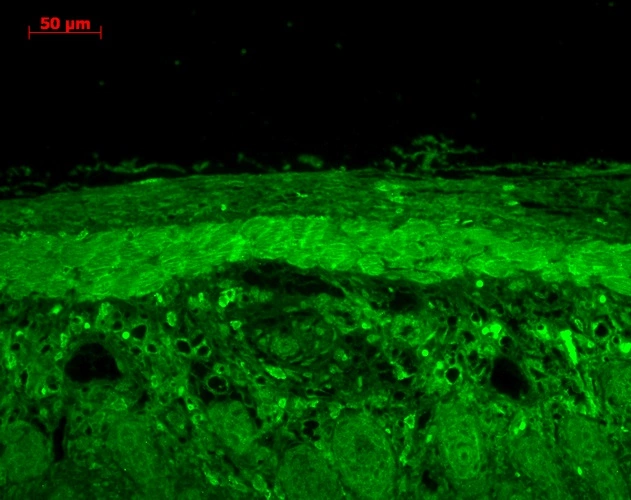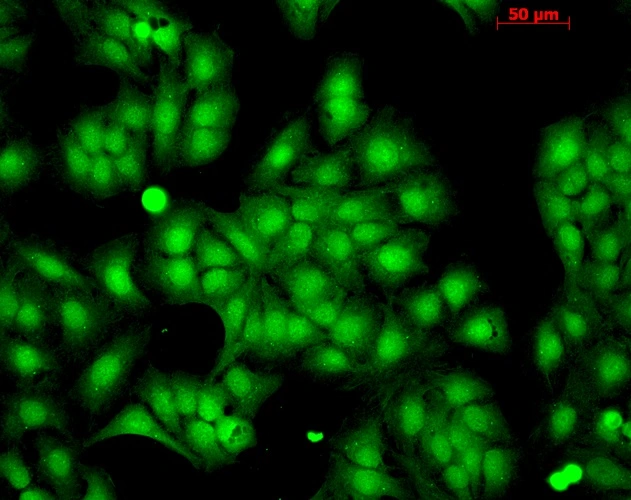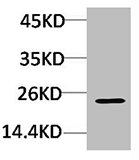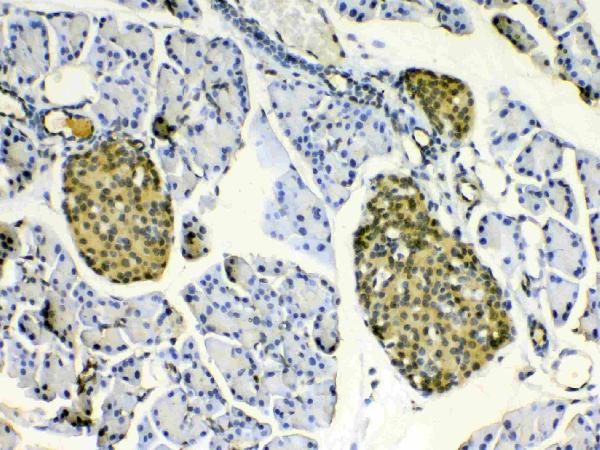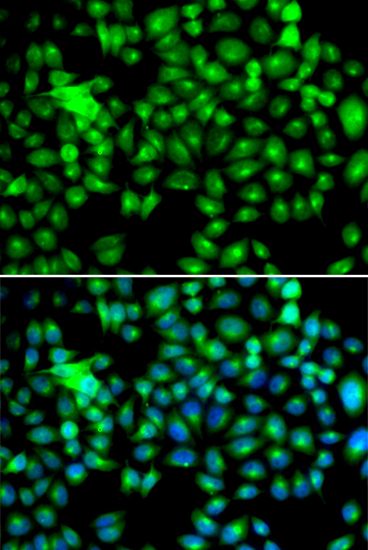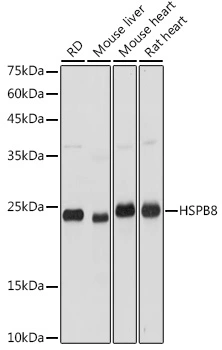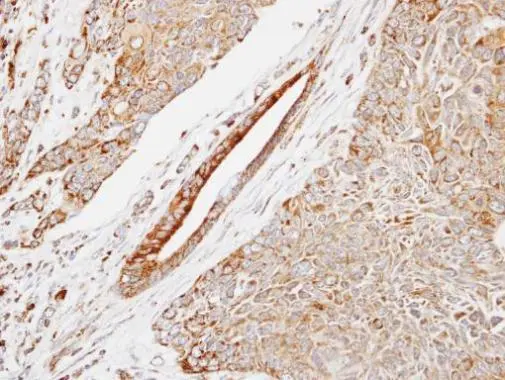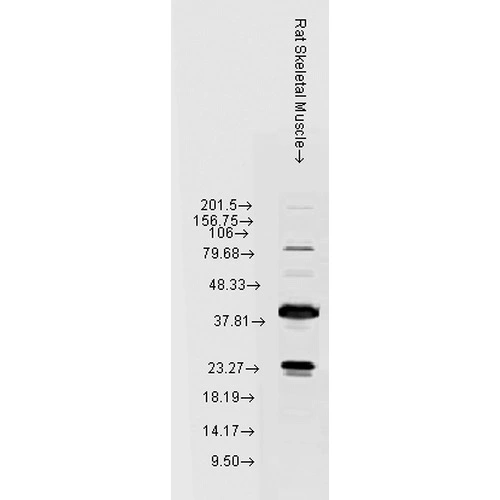
WB analysis of rat skeletal muscle tissue lysate using GTX04663 HSP22 antibody. Loading : 15 μg Dilution : 1:1000
HSP22 antibody
GTX04663
ApplicationsImmunoFluorescence, ImmunoPrecipitation, Western Blot, ImmunoCytoChemistry, ImmunoHistoChemistry, ImmunoHistoChemistry Paraffin
Product group Antibodies
ReactivityHuman, Mouse, Rat
TargetHSPB8
Overview
- SupplierGeneTex
- Product NameHSP22 antibody
- Delivery Days Customer9
- Application Supplier NoteWB: 1:1000. ICC/IF: 1:100. IHC-P: 1:100. *Optimal dilutions/concentrations should be determined by the researcher.Not tested in other applications.
- ApplicationsImmunoFluorescence, ImmunoPrecipitation, Western Blot, ImmunoCytoChemistry, ImmunoHistoChemistry, ImmunoHistoChemistry Paraffin
- CertificationResearch Use Only
- ClonalityPolyclonal
- Concentration1 mg/ml
- ConjugateUnconjugated
- Gene ID26353
- Target nameHSPB8
- Target descriptionheat shock protein family B (small) member 8
- Target synonymsCMT2L, DHMN2, E2IG1, H11, HMN2, HMN2A, HMND2, HSP22, HSPB8-N1, HSPB8-N2, MFM13, heat shock protein beta-8, E2-induced gene 1 protein, alpha-crystallin C chain, heat shock 22kDa protein 8, heat shock 27kDa protein 8, heat shock protein family B member 8, protein kinase H11, small stress protein-like protein HSP22
- HostRabbit
- IsotypeIgG
- Protein IDQ9UJY1
- Protein NameHeat shock protein beta-8
- Scientific DescriptionThe protein encoded by this gene belongs to the superfamily of small heat-shock proteins containing a conservative alpha-crystallin domain at the C-terminal part of the molecule. The expression of this gene in induced by estrogen in estrogen receptor-positive breast cancer cells, and this protein also functions as a chaperone in association with Bag3, a stimulator of macroautophagy. Thus, this gene appears to be involved in regulation of cell proliferation, apoptosis, and carcinogenesis, and mutations in this gene have been associated with different neuromuscular diseases, including Charcot-Marie-Tooth disease. [provided by RefSeq, Jul 2008]
- ReactivityHuman, Mouse, Rat
- Storage Instruction-20°C or -80°C,2°C to 8°C
- UNSPSC41116161

